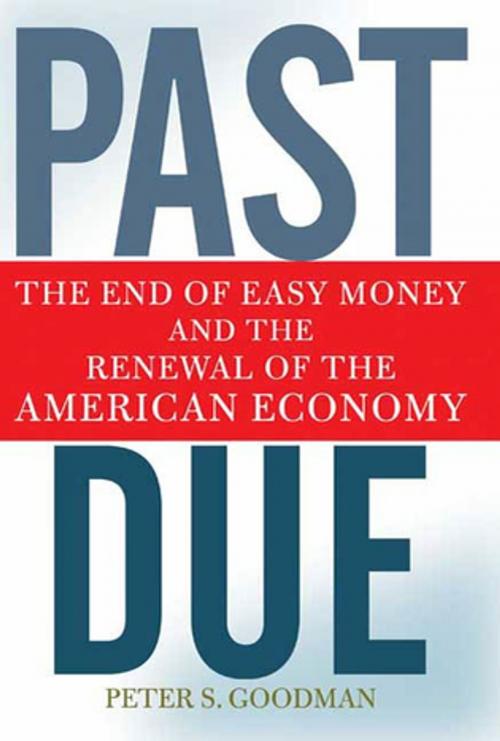Past Due
The End of Easy Money and the Renewal of the American Economy
Business & Finance, Economics, Economic History, Finance & Investing, Finance| Author: | Peter S. Goodman | ISBN: | 9781429918763 |
| Publisher: | Henry Holt and Co. | Publication: | September 15, 2009 |
| Imprint: | Times Books | Language: | English |
| Author: | Peter S. Goodman |
| ISBN: | 9781429918763 |
| Publisher: | Henry Holt and Co. |
| Publication: | September 15, 2009 |
| Imprint: | Times Books |
| Language: | English |
How Main Street was hit by—and might recover from—the financial crisis, by The New York Times's national economics correspondent
When the financial crisis struck in 2008, Main Street felt the blow just as hard as Wall Street. The New York Times national economics correspondent Peter S. Goodman takes us behind the headlines and exposes how the flow of capital from Asia and Silicon Valley to the suburbs of the housing bubble perverted America's economy. He follows a real estate entrepreneur who sees endless opportunity in the underdeveloped lots of Florida—until the mortgages for them collapse. And he watches as an Oakland, California-based deliveryman, unable to land a job in the biotech industry, slides into unemployment and a homeless shelter. As Goodman shows, for two decades Americans binged on imports and easy credit, a spending spree abetted by ever-increasing home values—and then the bill came due.
Yet even in a new environment of thrift and pullback, Goodman argues that economic adaptation is possible, through new industries and new safety nets. His tour of new businesses in Michigan, Iowa, South Carolina, and elsewhere and his clear-eyed analysis point the way to the economic promises and risks America now faces.
How Main Street was hit by—and might recover from—the financial crisis, by The New York Times's national economics correspondent
When the financial crisis struck in 2008, Main Street felt the blow just as hard as Wall Street. The New York Times national economics correspondent Peter S. Goodman takes us behind the headlines and exposes how the flow of capital from Asia and Silicon Valley to the suburbs of the housing bubble perverted America's economy. He follows a real estate entrepreneur who sees endless opportunity in the underdeveloped lots of Florida—until the mortgages for them collapse. And he watches as an Oakland, California-based deliveryman, unable to land a job in the biotech industry, slides into unemployment and a homeless shelter. As Goodman shows, for two decades Americans binged on imports and easy credit, a spending spree abetted by ever-increasing home values—and then the bill came due.
Yet even in a new environment of thrift and pullback, Goodman argues that economic adaptation is possible, through new industries and new safety nets. His tour of new businesses in Michigan, Iowa, South Carolina, and elsewhere and his clear-eyed analysis point the way to the economic promises and risks America now faces.















